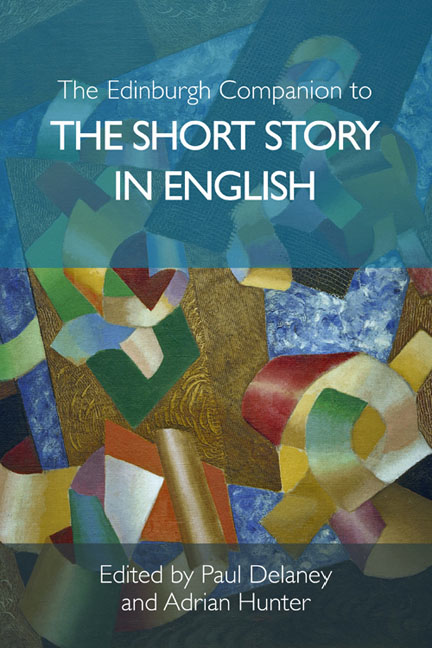Book contents
- Frontmatter
- Contents
- Acknowledgements
- Notes on Contributors
- Introduction
- Part I Historicising the Short Story
- Part II Publishing the Short Story
- Part III Forms of the Short Story
- 9 Short-Short Fiction
- 10 The Weird Tale
- 11 The Horror Story
- 12 Experimental Short Stories
- 13 The War Story
- Part IV Placing the Short Story
- Part V Identity and the Short Story
- Index of Short Story Titles
- General Index
12 - Experimental Short Stories
from Part III - Forms of the Short Story
Published online by Cambridge University Press: 18 December 2019
- Frontmatter
- Contents
- Acknowledgements
- Notes on Contributors
- Introduction
- Part I Historicising the Short Story
- Part II Publishing the Short Story
- Part III Forms of the Short Story
- 9 Short-Short Fiction
- 10 The Weird Tale
- 11 The Horror Story
- 12 Experimental Short Stories
- 13 The War Story
- Part IV Placing the Short Story
- Part V Identity and the Short Story
- Index of Short Story Titles
- General Index
Summary
THE EXPERIMENTAL SHORT STORY is particularly amenable to analytical approaches based on the concept of deviation (or foregrounding) in relation to perceived norms; this is because the term ‘experimental’ itself implies and entails working against a prevailing paradigm. These deviations can take many forms. They can be linguistic, and thus at the level of discourse (the linguistic building blocks of the text), or narratological (at the level of story structure: the ways in which the ‘matter’ of the story itself is mediated by the writer for the reader). According to this formulation, experimentation is manifested as a type of deviation against the background of what readers expect a short story to be – against what Paul Simpson has termed our expectations of ‘wellformedness’. To draw on terminology from literary stylistics: the reader brings a pre-defined narrative schema to bear upon the reading experience. This schema is a set of expectations and preconceptions of what a short story should be, learned and embedded during a life's experience of reading. If a story fails to accord with this schema in some way – if it challenges and/or modifies it – the reader views that story as ‘experimental’.
However, it could be argued that there is another, equally interesting way to think about experimental short fiction, and that is to focus on its ‘content’ as distinct from its discourse. In other words, the very matter of what the story is about – the imaginary world that it cues up in the mind of the reader – can also be in some way deviant, and thus key to its experimental nature. To draw a broad example from literary history: much early literature involved princely, courtly or deified characters and concerned the deeds of gods, queens, kings and heroes, rarely if ever ordinary people living quotidian lives. Thus, Chaucer's Canterbury Tales were ‘experimental’ in their context, not only through their rendering of the contemporary oral vernacular (Middle English) as text but also in the tales’ depictions of the trials and tribulations of pardoners, squires and millers. Now that the palette from which story subject matter can be drawn is so much larger, if not infinite, what might be said to constitute ‘experimental’ subject matter? Science fiction? Magic? Surrealism?
- Type
- Chapter
- Information
- The Edinburgh Companion to the Short Story in English , pp. 193 - 210Publisher: Edinburgh University PressPrint publication year: 2018

